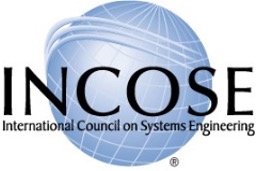



June 23rd – 26th 2024
Venue: Murano Hotel, Tacoma, WA, USA
Conference Theme: AI Role in Systems of Systems Engineering





RTX, USA

Principal Robotics Engineer, NASA JPL

IBM Watson, USA

Senior Technical Fellow, Boeing, USA

INCOSE, USA
Title: Role of AI-ML in SoSE to Support Human Decision Making (Download)
(Monday 24th June 09:00 AM – 10:00 AM)
Abstract: Commercial and military systems have evolved into complex Systems of Systems (SoS) that incorporate advanced and diverse technologies. Associated with these SoS are emerging behaviors that require decision support well beyond the capacity of human reasoning alone. To fill this gap, Artificial Intelligence and Machine Learning (AI/ML) can assist SoS Engineering with respect to operationally realizing the full potential (e.g., speed, scale, and accuracy) of the capabilities offered by these SoS. This presentation provides a review of the concepts of complex SoS and emergent behavior, discusses the fundamentals of AI/ML, and then ties these together to demonstrate the role of AI/ML in SoSE through specific commercial and military use cases. These use cases include:
In summary, through this background information and these use cases, the audience will emerge from this presentation with a focused understanding of AI’s role in SoSE with respect to supporting human decision-making for complex, emergent SoS.
About: Paul C. Hershey is presently in his 20th year with RTX, Dulles, Virginia, where he is a Principal Engineering Fellow focusing on data analytics, AI/ML, and modeling and simulation. He has published 41 patents (granted), along with 9 patents pending with the US Patent Office, and over 75 peer-reviewed technical publications. Previously, he was an adjunct professor at George Washington University where he also served on the Curriculum Advisory Board. He is an IEEE Fellow and serves on technical program committees for the IEEE International Systems Conference (also on the conference steering committee) and the IEEE International System of Systems Engineering Conference (also an industrial liaison). He is a Distinguished Lecturer on data analytics for the IEEE Systems Council. Dr. Hershey received the A.B. degree in mathematics from the College of William and Mary, Williamsburg, VA, USA, and the Ph.D. and M.S. degrees in electrical engineering from the University of Maryland, College Park, MD, USA. His Ph.D. research, sponsored by IBM, created a novel information collection, analysis, and decision system that resulted in direct customer sales.
Title: Integrating Worlds: Systems of Systems in the Era of Telexistence and the Telepresence Society
(Monday 24th June 02:45 PM – 3:45 PM)
Abstract: Telepresence, the extension of human ‘presence’ beyond their immediate physical surroundings, has significant implications for a multitude of possible futures. In almost all scenarios, we will witness the emergence of a telepresence economy and, more broadly, a telepresence society. When this presence extends to virtual worlds, it is commonly referred to as ‘telexistence,’ encompassing extensions of our presence through both physical and virtual avatars. With remote presence, truly ‘the sky is the limit,’ as activities expand beyond Earth’s surface. A space economy has indeed been ignited, albeit currently limited to Earth’s orbit (envisage communication and Earth-observing satellites, and sub-orbital flights as the seeds of space tourism). A lunar economy, or more specifically, an economy in cis-lunar space, is expected to follow within the next 2-3 decades, driven by space robots and telepresence. These space robots will possess high levels of autonomy and, eventually, superior intelligence. However, until that advanced stage is reached, they will be teleoperated or tele-supervised by humans. Beyond being instrumental in completing tasks, human interaction is crucial, as machines will learn from human demonstrations and exemplifications, a process I refer to as ‘interpolative intelligence.’ This talk will project us into some of the possible futures in which telexistence will profoundly transform our society. A new fabric of systems of systems is thus woven, as the singular space of operation for an individual extends to a multiplicity of remote spaces, concurrently, or more realistically, through time-multiplexing, as our abilities for concurrent processing are, at least for now, rather limited.
About:
Dr. AshiteyTrebi-Ollennu, FIET, FRAeS, FGA, SMIEE, is a Principal Robotics Engineer, Deputy Chief Engineer, and Assistant Division Manager of the Autonomous Systems Division 34, at NASA Jet Propulsion Laboratory, California Institute of Technology. Dr Trebi-Ollennu served as the Chief Engineer for the Mobility and Robotic Systems section from 2017 to 2020, Product Delivery Manager for the InSight Mars Mission Instrument Deployment System, and InSight Mars Mission Instrument Deployment System operations Team Chief. Member of IEEE steering committee in telepresence.
Title: Reasoning About the Future of AI in Systems Engineering (Tuesday 25th June 09:00 AM – 10:00 AM)
Abstract: AI has jumped to the forefront of our collective psyche in the past year. In some ways this looks much like the early stages of the typical technology hype cycle. But we also see indications of something quite unique, something that will transform the way we work unlike anything else in recent history. As Yogi Berra and Neils Bohr both observed, making predictions is difficult, especially about the future. Instead we will look at impacts already happening, unique characteristics of AI that make it unlike other technology waves, identify some of the well-known and lesser-known risks, and attempt to extrapolate a bit about the next steps in Systems Engineering with AI and for AI. We will end this thought-provoking session with a discussion of the most critical obstacle to the application of AI in Systems Engineering.
About: Sky is an IBM Distinguished Engineer and the Chief Technology Officer for IBM’s Engineering Lifecycle Management applications. He is responsible for technical strategy and directions related to the Systems Engineering tools within IBM’s Software business. Sky has lengthy experience working with clients in complex and embedded systems development across many industries, including telecom equipment, aerospace/defense, automotive, and electronics. He was honored to be a member of INCOSE’s Vision 2035 working group. Sky is currently focused on the development of SysML V2 tools as well as application of AI in Systems Engineering within IBM.
Title: Lifecycle roles of AI in Systems of Systems (Tuesday 25th June 01:00 PM – 02:00 PM)
Abstract: For decades, we have anticipated the advance of artificial intelligence – such days are increasingly among us. Questions about their capabilities and use face many of us every day, not least among developers of complex systems and systems
of systems. Like most tools, we are looking for the right tools for the job. While it might be tempting for lay considerations, AI might not be the hammer needed to nail all things together.
This talk concerns the balancing act that characterizes systems engineering – the best value determination to address the mission in hand. Can AI help with this? Our natural reaction as engineers might be to say yes of course, but that answer leaves much unanswered as to how we establish bounds of applicability. That determination, like other systems engineering questions, depends on the nature of the problem, expressed in the full set of functional performance, constraints, environmental and suitability factors. On the edges of such assessments, we have systems of systems situations demanding exceptional confidence that the mission will be satisfied, such as to safely transport people and goods from here to there, or to ensure a missile defense can intercept a target. I shorthand this need in terms of high integrity, which manifests in terms such as safety, quality, and operational availability.
So how do we know? What problems are amenable and what tools are suitable? Like the systems themselves, the tools we apply have characteristics we must align to necessary capabilities. For high integrity applications, it is critical that we do not overreach the AI capability to provide high confidence inputs. This talk will expand on such criteria and how they change with time.
About: John Palmer has over 40 years spent learning about the design, analysis, verification, and operation of complex systems, John has worked at the levels of detailed HW/SW integration in high integrity avionics, through systems of systems required for globally mobile communication services. John’s experience includes manned spacecraft, communication and remote sensing satellites, commercial aircraft flight control and systems integration, and mobile satellite communication. As a Senior Technical Fellow of The Boeing Company, John is sought for consulting and execution of critical engineering challenges across business units. John’s responsibilities aim at improving system engineering practices, and planning for long range implications of disruptive technology
Title: Beyond Technology: Thinking Holistically about Artificial Intelligence for Systems Engineering (Download)
(Wednesday 26th June 09:00 AM – 10:00 AM)
Abstract: Systems Engineering is in the midst of a digital transformation driven by advanced modeling tools, data integration, and digital twins. Engineering disciplines are seeing transformational advances in the use of artificial intelligence and machine learning to elevate systems engineering processes. AI in systems engineering enables more efficient processing of large datasets, enhanced decision-making, and automation of routine engineering tasks. At the same time, applying AI and ML to complex and critical systems needs holistic, system-oriented approaches. Technical challenges include ensuring data quality, implementation of algorithm complexity, and integration with existing systems. It is imperative that the SE community not only understand emerging AI and ML technologies and applications, but we need to incorporate them into our processes, methods and tools, and ensure that holistic SE approaches are used to make AI systems ethical, reliable, safe, and secure.
About: Marilee J. Wheaton is a Systems Engineering Fellow in the Engineering & Technology Group at The Aerospace Corporation. Wheaton is responsible for providing technical leadership to include enterprise systems engineering, systems architecting, digital engineering and model-based systems engineering. Previous leadership roles over her thirty-year career at Aerospace include General Manager for the Systems Engineering Division and the Computer Systems Division, and Executive Director of The Aerospace Institute, the corporate university.
A member of INCOSE since 2002 and the immediate past INCOSE President, she was selected as an INCOSE Fellow in 2009 for her contributions as a practitioner and to engineering education and received one of the INCOSE Outstanding Service Awards in 2018.
Wheaton is also a Fellow of the American Institute of Aeronautics and Astronautics (AIAA) and is an active member of the organization’s technical committee on systems engineering. She is also a Fellow and Life Member of the Society of Women Engineers (SWE) and a Senior Member of IEEE.
Marilee holds a B.A. in mathematics from California Lutheran University, an M.S. in systems engineering from the University of Southern California (USC) and is a graduate of the UCLA Executive Program in Management. Wheaton has served as adjunct faculty in the Systems Architecting and Engineering Program at USC Viterbi.